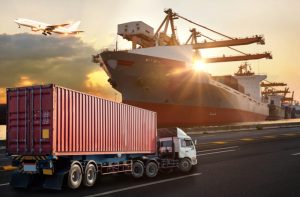In the dynamic landscape of global trade, maneuvering through the complexities of supply chain logistics can be a challenging task. However, with the vital role that freight forwarding services play in ensuring the seamless movement of goods worldwide, businesses like yours can effectively mitigate risks and achieve excellent results. By entrusting your freight forwarding needs to experts in the field, you not only streamline your operations but also gain a competitive edge in the global marketplace. Stay tuned to uncover the key strategies and benefits that freight forwarders bring to the table, propelling your business towards success.

Importance of Freight Forwarding Services
When considering global trade operations, understanding the pivotal role that freight forwarding services play in ensuring smooth logistics management is essential. Freight forwarders facilitate the movement of goods across borders, handling documentation, customs clearance, and transportation arrangements. Their expertise in traversing complex international regulations and optimizing supply chain efficiency can greatly impact the success of your global trade endeavors.
Risk Mitigation Strategies
To enhance the resilience of your global trade operations, implementing robust risk mitigation strategies is imperative. Begin by conducting thorough risk assessments to identify potential vulnerabilities. Develop contingency plans for key scenarios such as supply chain disruptions or geopolitical issues. Utilize technology for real-time monitoring and data analysis to proactively address risks. Establish clear communication channels with partners and suppliers to guarantee swift response to any unforeseen challenges.
Supply Chain Optimization Techniques
Optimize your supply chain by implementing data-driven analytics and lean inventory management techniques. Utilize advanced forecasting models to streamline inventory levels and reduce carrying costs. Employ just-in-time inventory practices to minimize waste and improve efficiency. By leveraging these optimization strategies, you can enhance supply chain performance, increase responsiveness to market demands, and achieve cost savings across your operations.
Customs Compliance Solutions
As you streamline your supply chain operations through advanced forecasting models and lean inventory management, ensuring customs compliance solutions becomes essential for minimizing risks and maximizing efficiency in international trade. Implementing robust customs strategies, staying updated on regulations, and leveraging technology for seamless documentation are vital steps to mitigate delays, penalties, and disruptions in your global logistics network. Prioritizing customs compliance enhances supply chain resilience and fosters smoother cross-border transactions.
Cost-Effective Transportation Methods
Implementing efficient transportation methods is essential for reducing costs and enhancing the overall effectiveness of your logistics operations. By optimizing route planning, consolidating shipments, and leveraging intermodal transportation, you can achieve significant cost savings. Negotiating volume discounts with carriers and utilizing technology for real-time tracking and monitoring also contribute to lowering transportation expenses. Striking a balance between cost-effectiveness and service quality is vital for sustainable logistics management.
Role in International Trade Success
Playing a pivotal role in facilitating global trade, freight forwarding services are essential for ensuring the smooth flow of goods across international borders. By coordinating logistics, customs clearance, and documentation, freight forwarders help businesses navigate complex international trade regulations. Their expertise in optimizing shipping routes, selecting appropriate transport modes, and managing risk factors contributes greatly to the success of international trade operations.
Future Trends in Freight Forwarding
Optimizing supply chain visibility and leveraging advanced technology are key factors shaping the future trends in freight forwarding services. Embracing real-time tracking systems, blockchain for secure transactions, and AI for predictive analytics will revolutionize the industry. Automation in documentation processes and eco-friendly solutions like sustainable packaging will also drive changes. Adapting to these trends will be essential for freight forwarders to stay competitive and meet evolving customer demands effectively.